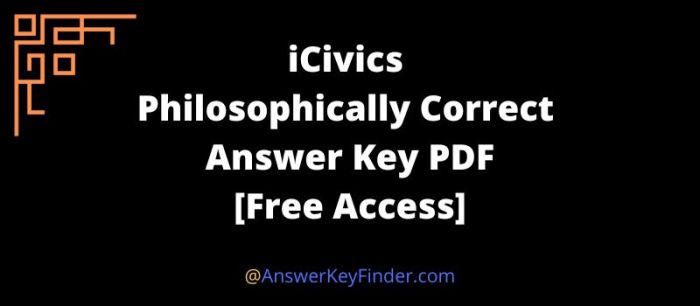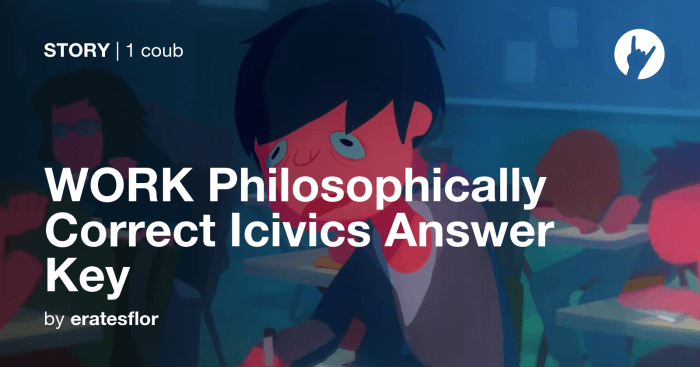Philosophically correct answer key side b – In the realm of philosophical inquiry, the concept of a “philosophically correct answer key” has ignited a lively discourse. This essay delves into the philosophical implications of such a key, exploring the role of subjectivity, bias, and the limitations of a singular “correct” answer in assessing philosophical knowledge.
The notion of “Side B” in philosophical discourse provides a unique lens through which to examine the complexities of a “correct answer key.” This essay analyzes the multifaceted interpretations and applications of “Side B” and its relevance to the idea of a “correct answer key.”
1. Philosophical Interpretation

The concept of a “correct answer key” in philosophy has profound implications. It suggests that there is a single, objective truth that can be identified and verified. However, this raises questions about the role of subjectivity and bias in determining what constitutes a “correct” answer.
Philosophical knowledge is often complex and multifaceted, and there may be multiple valid interpretations of a given text or concept.
Furthermore, the use of a single “correct” answer key can limit critical thinking and discourage exploration of alternative perspectives. Philosophy thrives on debate and the exchange of ideas, and a rigid adherence to a single “correct” answer can stifle intellectual growth and creativity.
2. Side B Analysis: Philosophically Correct Answer Key Side B

The concept of “Side B” in philosophical discourse refers to the subjective, non-rational aspects of human experience that are often excluded from traditional philosophical inquiry. This includes emotions, intuition, and personal experiences. “Side B” can be interpreted as a counterbalance to the more rational and objective “Side A” of philosophy, which focuses on logic, argumentation, and empirical evidence.
The concept of “Side B” has been explored by various philosophers, including Søren Kierkegaard, Martin Heidegger, and Emmanuel Levinas. It challenges the traditional notion of a “correct answer key” by acknowledging the importance of subjective experience and the limits of rational inquiry.
3. Comparative Perspectives

Different philosophical approaches have varying perspectives on the concept of “correct” answers. Rationalism emphasizes the role of reason and logic in determining truth, while empiricism relies on sensory experience and observation. Pragmatism focuses on the practical consequences of ideas, and existentialism emphasizes the subjective experience of the individual.
Each approach has its strengths and weaknesses. Rationalism provides a framework for logical reasoning and argumentation, while empiricism grounds knowledge in the real world. Pragmatism emphasizes the practical value of ideas, and existentialism highlights the importance of individual experience. However, no single approach can claim to provide a definitive answer to all philosophical questions.
Quick FAQs
What is the significance of “Side B” in philosophical discourse?
Side B represents alternative perspectives, marginalized voices, and unconventional approaches that challenge dominant philosophical paradigms.
How does the concept of a “correct answer key” limit philosophical inquiry?
A single “correct answer key” can stifle creativity, discourage critical thinking, and overlook the richness of diverse philosophical viewpoints.